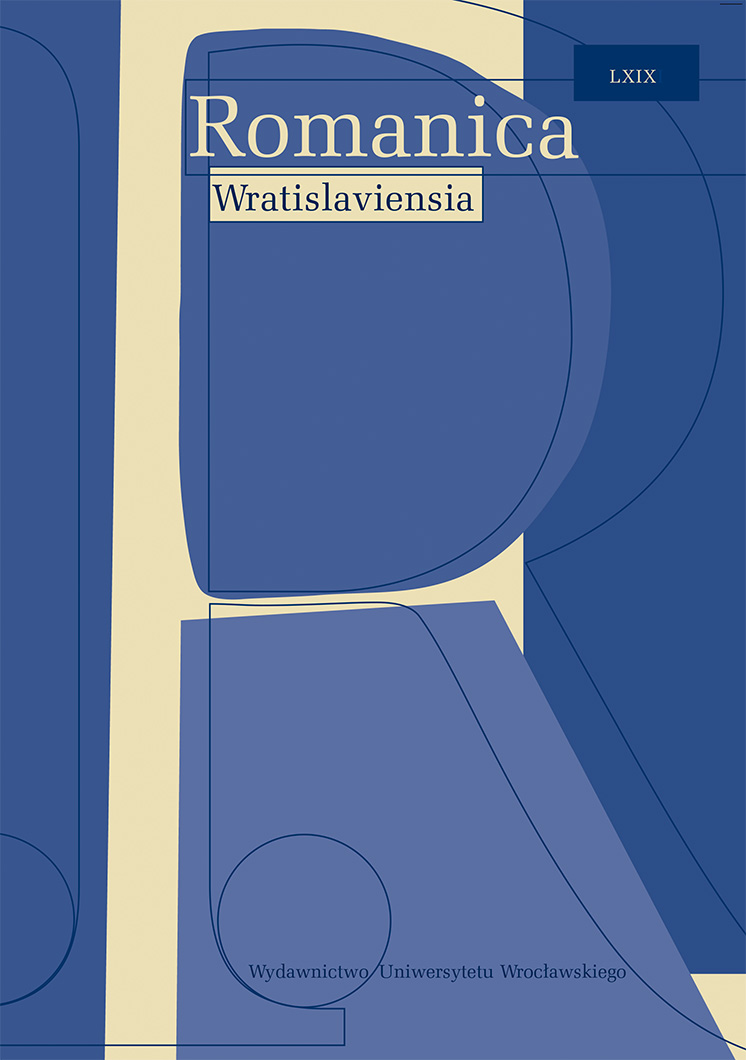Des relations textuelles entre les discours représentés narrativisés et les autres formes de discours représentés et de la distinction entre discours représentés narrativisés exprimant des pensées et narration des états intérieurs
The textual relations between narrativized represented speech and other forms of represented speech and the distinction between narrativized represented speech expressing thoughts and narration of inner states
Author(s): Alain RabatelSubject(s): Language and Literature Studies, Theoretical Linguistics, Comparative Linguistics
Published by: Wydawnictwo Uniwersytetu Wrocławskiego
Keywords: represented speech; mental spaces; speaker/speaker disjunction; deixis/modality disjunction; locutionary narrativized represented speech; narrativized represented speech expressing thoughts vs. narrat
Summary/Abstract: This article revisits the analysis of narrativized discourse, from the point of view of the theoretical framework of represented discourse and according to a pragma-enunciative perspective sensitive to the effects produced by enunciative actualization in a text/speech. It distinguishes between locutionary narrativized discourse and narrativized discourse expressing inner thought (PDRN-PI). It then shows that an empathetic narration gives rise to DRN-PI representing the PDV of the characters (who are in charge of them) and not to the narrator’s comments or descriptions on the mental states of these characters. The article concludes with a number of clarifications regarding Genette’s 1972 and 1983 analyses on the one hand, and questions addressed to Authier-Revuz’s 2020 model on the other hand, based on the speaker/enunciator distinction, on the disjunction between deixis and modality, the latter being anchored in different media. In doing so, it highlights the undervaluation of thoughts in studies of ‘reported’ speech and argues for a re-analysis of all represented speech.
Journal: Romanica Wratislaviensia
- Issue Year: 69/2022
- Issue No: 1
- Page Range: 77-91
- Page Count: 15
- Language: French

